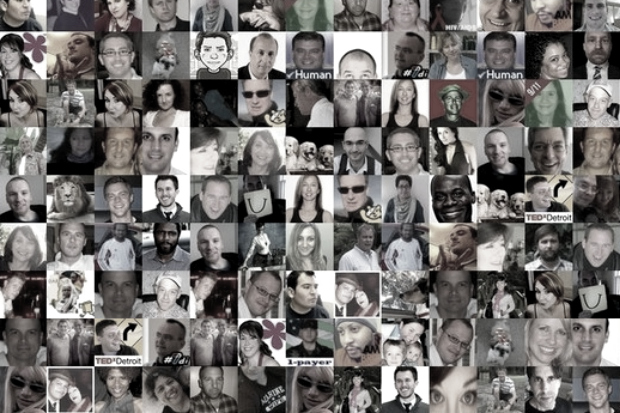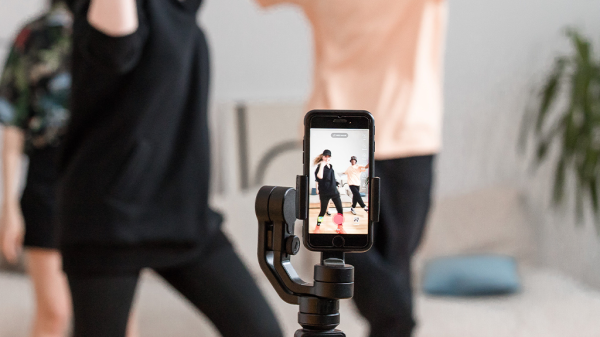
The mainstream definition of the word friend
We call it friending online, but is it really, in the American sense of the word? My European, African and Asian friends make fun of me because they’re frankly not as uptight about the label “friend” as we are here in the States. Yes, I get it, you’re better than me in your respective parts of the world.
For our discussion, let’s reference the American definition of friendship, which in mainstream culture is “individual I really know, in person.”
Clearly, accepting a friend request, following them, or any other way of making an electronic connection to another individual through their profile isn’t truly friending. At its best, this part of the process is getting acquainted.
Of course it would be useless to discard or discount the idea that we are sometimes more intimate, more emotionally tied even, to the people we form relationships with online than the people we know in person. After all, if we chose to connect that way, and we’re adept at sharing ourselves and allowing other people to share with us, we get to know people from the inside out, to mingle with their souls in a way that allows us to bypass all the little prejudices we have in the offline world.
In our offline lives, we will sometimes sort people out of our interaction with the most ridiculous things – geekiness, weight, height, class, coolness. Not so online, which sometimes helps with faster, deeper connections. Far be it from me to deny it.
The steps that follow are not “friending”
But if we’re looking at it in terms of the process, and in the situations that generally result form the kind of business contacts a startup or entrepreneur would be most focused on making online, then truly, this process and the steps that follow are not friending.
We’re becoming acquainted. Nothing wrong with that. The thing we want to examine is – how do we turn all these fledgling relationships into the best case scenario? How do we go from prospect to customer, from visitor to subscriber, from peer to partner, from follower to brand evangelist?
Let’s not be coy – social media connections aren’t just about finding like-minded people to play virtual mental footsie with, by any means. We want to provide customer service, we want to crowd-source ideas, we want to have open channels for feedback.
And when we write a blog post, it would also be great if 50 to 10,000 willing minions would retweet that bad boy.
Assuming we have locked down the mandatory prerequisites of creating our best content and releasing it in a shareable way, what is the next step to massive visibility?
The next step to massive visibility
I mean, besides realizing it will happen in steps and that you’re not just going to wake up one day with thousands of engaged followers, and their ongoing attention as well as affection, without doing anything.
The next step is strengthening those connections as much as you possibly can. And to do that, you need to get more intimate. Ew, no, not like that.
Though dating metaphors help – what do you do when you meet someone you think is special in a group setting? You steal them away from the group for a one on one discussion or interaction. Then you propose another meeting for a date, often a casual one in a public setting. As you trust each other more, the settings for the encounters will often become more intimate.
And on and on it goes until you’re comfortable enough to be completely alone. And varying levels of magic may occur.
Yes, the key to advancing from casual acquaintances in dating is intimacy. And it is online but in a different way.
How to get the magic to happen with your social media “friends”
These are different settings and different circumstances, where you’re looking to achieve another type of goal. However, intimacy is still the key. The problem is, it’s logistically harder to create an intimate experience. For 100 – 20,000 people. At the same time.
I could lie in this part of the article and say that I’ve mastered this and who would know? People who I’ve succeeded with this would cheer for me – they know the affection is mutual. Anyone I’ve failed with wouldn’t be reading anything I wrote any more. If you’re reading this because I’ve been honored with a placement on AGBEAT, you trust them, not me.
Tips and tricks:
So, not because I’m a good person, but because honesty saves everyone a lot of time – some of these tips I have tried, and can share personal stories about. Others are hunches based on observations of clients and colleagues that have worked for them. Unlike my usual batch of tips, these are anecdotal and not one shred of science has been used in jumping to these conclusions.
But.
I’d bet my 13 years of experience in the area of online visibility that taking the time to create a more intimate experience with the people crowding around you is worth it. Specifically, it will make a noticeable difference in your success rate if you have to ask them to do something for you in the future, be it subscribe, buy or spread the word about you.
Make some public discussions private
This works especially well with peers and colleagues. Once a public back and forth discussion of business has gone to a second round, take it to email or private message. Give them your full attention behind some kind of closed door. If there’s an important, prolonged discussion that needs to be had, think about scheduling a time to go into a web chat or voice instant message session about it.
Tinu Abayomi-Paul is the CEO of Leveraged Promotion and a member of Network Solutions Social web Advisory Board. Her website promotion company specializes in reputation management, and engineering demand generation system for businesses, integrating search, expertise marketing and social media.









































